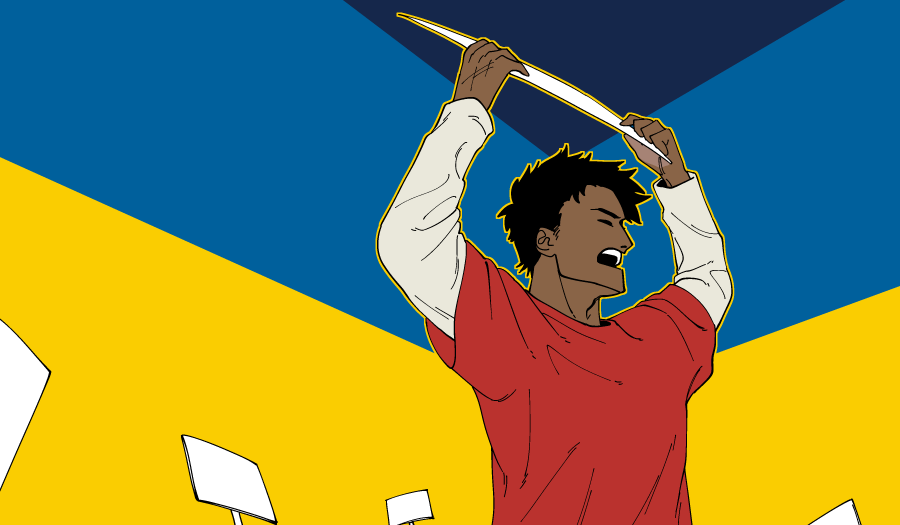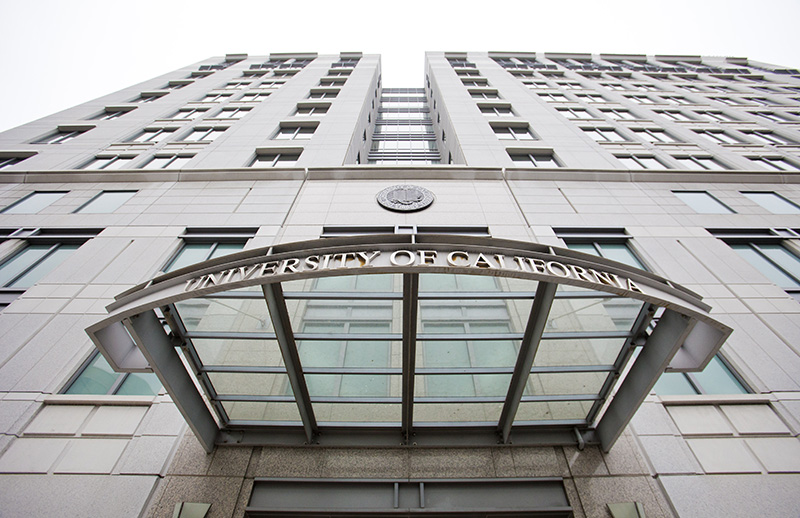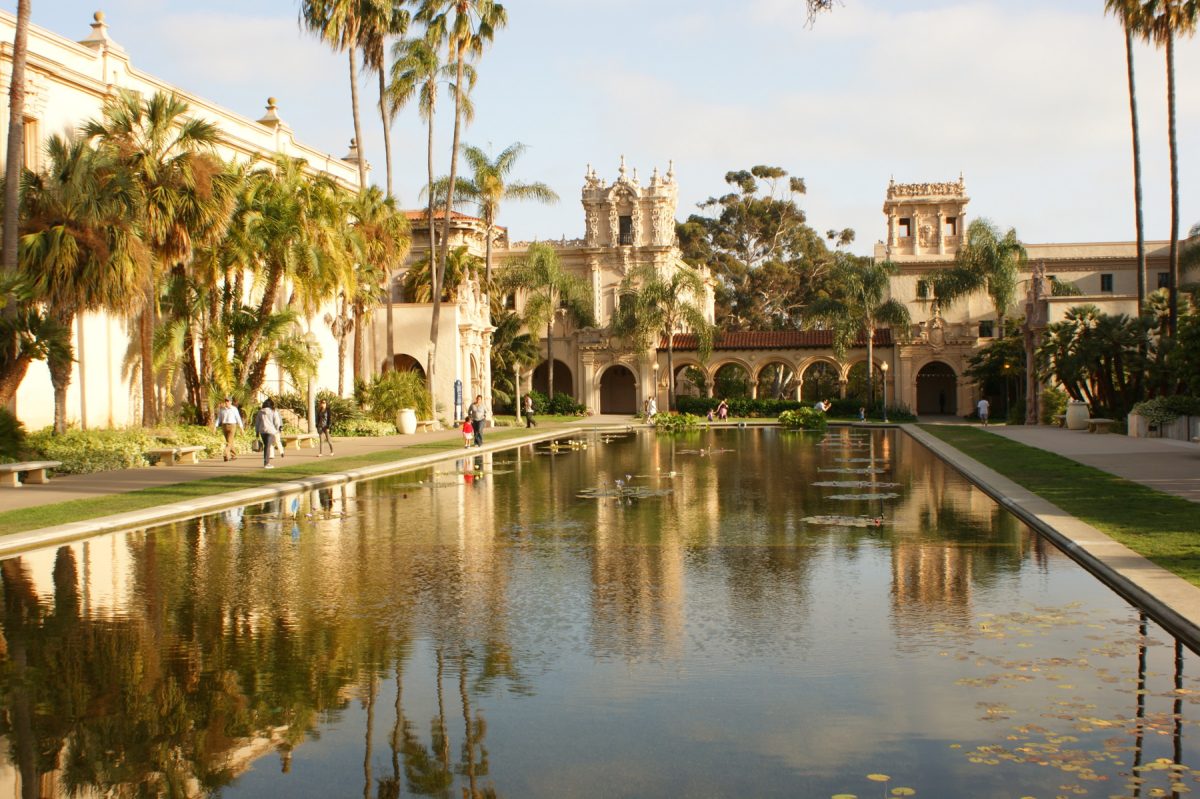Week 5
At Associated Students’ Week 5 meeting on April 28, senators were presented with a finalized A.S. budget reallocation proposal. Updates were provided regarding a proposal to fund subsidized housing for graduated students during the summer as well as plans for the creation of an Asian Pacific Islander Middle Eastern Desi American Center.
Senators had previously discussed the reallocation of the $1 million A.S. budget at their Week 3 meeting. After receiving feedback, A.S President Kimberly Giangtran said that the numbers remain unchanged from the last time they discussed the reallocation.
- $450,000 given to the Coronavirus Response and Relief Supplemental Appropriations Act (CRSSA) grants;
- $250,000 given to the International Students and Programs Office (ISPO) for academics, basic needs, health and wellness, travel, summer transition, graduating seniors, and administrative purposes;
- $125,000 to the Asian Pacific Islander Middle Eastern Desi American (APIMEDA) Center in order to create a physical space for the group in the original Student Center;
- $100,000 to graduating seniors’ emergency subsidized housing for this summer; and
- $75,000 to the experience of current freshmen, incoming sophomores, in order to facilitate the creation of services, programs and events current freshmen missed out on due to the pandemic.
The presentation was then turned over to Vice President of Campus Affairs Hannah Kreitman, who updated senators as to how the $100,000 allocated for emergency subsidized housing for graduating students would be used. Kreitman said that subsidized housing costs $51 per night, meaning that the allocated money could fund 1,960 beds/night for graduated students over the summer.
The $100,000 allocation can be broken up in any way, meaning that this program could hypothetically cover 32 students for 60 days, or 65 students for 30 days depending upon student demand. A.S. will have to fully fund each night, as Housing Dining Hospitality has said that they are not allowed to offer different rates to students.
The initiative that allowed for graduated students to remain on-campus during the summer began last year for those who needed flexible housing accommodations. Students had to pay out-of-pocket and the program was used for a total of 114 beds/nights.
Kreitman said that HDH thinks that the program is going to be utilized more this year.
“[HDH] anticipated that the [number of students participating in the program] would be a lot bigger for this upcoming summer,” Kreitman said. “A) Because it is a much more established program now. B) Because… last summer had more [COVID-19 restrictions] and this summer there are more people in San Diego. And C) because [A.S.] will be paying for a big chunk of it so more students will be able to enter the program.”
Kreitman noted that the program will prioritize graduated students. Leftover funding may be used to aid the Basic Needs Center in providing housing to continuing students as well.
The conversation then turned to the A.S. proposal to provide funding for the APIMEDA Center. Giangtran updated A.S. regarding her meeting with Vice Chancellor for Student Affairs Alysson Satterlund and Vice Chancellor for Equity, Diversity and Inclusion Dr. Becky Petitt to discuss the proposal.
Giangtran said that the proposal for the new cultural center would require a sustained cost of $500,000. She was allegedly informed by Petit and Satterlund that they appreciated A.S.’s advocacy for the center, but that they had expressed concerns about the proposal’s “prioritization” and “sustainability.”
Giangtran furthered that her takeaway from her conversation with administration was that they were disinterested in creating the APIMEDA center.
“My interpretation of [the conversation] is that it was a very flowery way of saying that this was not something they wanted to take on right now,” Giangtran said. “[Petit and Satterlund] never both explicitly said that there was no money for [the APIMEDA center] or that there were things in the way or obstacles that would prohibit them from pursuing [the center].”
Giangtran expressed interest in further discussion as to whether A.S. should fight in favor of the center, pursue alternative programming in support of the APIMEDA community, or reallocate the funding entirely.
At Giangtran’s request, Senate temporarily tabled the motion allocating the $125,000 to the next week. All other budgetary items were approved by A.S. later in the meeting.
Week 6
A.S. Senators held their Week 6 meeting on May 5. The items discussed included further UC response to the Accellion cyberattack, reallocation of $125,000 in A.S. funds meant for the APIMEDA center, as well as updates to the Fall 2021 campus reopening.
Vice President of External Affairs Becca Paskowitz said that she was working to collect feedback in opposition to proposed changes to UC Police Policies and Administrative Proposals, also known as the Gold Book. UC student organizations such as Cops off Campus have begun to campaign against these proposed changes, including creating system wide response teams and allowing UCPD to turn off body cameras.
Paskowitz also noted some agenda items that the UC Board of Regents was planning to discuss at its meeting on May 13. The Regents are expected to debate a proposal to implement cohort-based tuition. If implemented by UC, systemwide charges including base tuition, the Student Services Fee, and Nonresident Supplemental Tuition would remain flat for most students while enrolled at a UC school. Changes in these charges would then apply only to incoming cohorts of students.
Paskowitz said that the UC Student Association is opposed to this change. She went on to invite those opposed to the measure to reach out to her and encouraged the public to provide comments at the Regents meeting.
Paskowitz also noted that she had spoken to UC President Michael Drake and expressed concerns regarding April’s Accellion cyberattack. She said that UC acknowledges that steps are being taken to improve data security.
“[UC] is still trying to get everything sorted out,” Paskowitz said. “They are trying to provide a little more support to students, [but] it is still concerning to me. Some of the things that they are advising students to do is to keep safer passwords, to make more complex passwords, and to use password keepers to keep track of them.”
Paskowitz said that UC has received complaints from students that there have been delays in customer service from Experian, the company that UC is working with to provide students with free credit monitoring and identity theft protection in response to the cyberattack. UC is hoping to establish its own hotline for students to call in and receive assistance with Experian and data breach information.
A.S. President Kimberly Giangtran then updated A.S. Senate on her meeting with APIMEDA Program Manager Windi Sasaki. Giangtran said that she and Sasaki agreed that there is not much feasibility in establishing a cultural center in the near future.
“The amount of money that would be required to renovate the space above Blue Pepper and the cost situation is not in our favor,” Giangtran recalled. “[Sasaki] said ‘the thing that you can do right now to help me the most is to hire new staff.’ She is a one-person office… and with all the conversations that are happening… it has been difficult for her to do her job when she is supposed to represent 60 different ethnic communities under [UC San Diego’s] definition of APIMEDA.”
Giangtran then moved on to provide further information about the Fall 2021 campus reopening. She said that UCSD administration is hopeful that international students who already have visas will have an easier time entering the United States in the fall due to the lifting of COVID-19 related travel restrictions. However, other international students may have difficulties with getting visas due to current embassy closures.
UCSD administration expects that most students will be taking courses in person unless they have a legitimate reason that they can not, particularly students who are unable to arrive from abroad. Roughly 80 percent of courses offered in Fall 2021 will be in-person, while the other 20 percent will be remote. However, Giangtran added that she was informed by UCSD that they do not plan to prioritize course enrollment for students who are unable to attend classes in-person.
Additionally, students who are immuno-compromised will have to file an accommodation with the UCSD Office for Students with Disabilities. Once processed, OSD will provide any academic accommodations the student may need.
Finally, Giangtran updated A.S. on comments made by President Drake at a meeting she attended regarding plans for a UC vaccine mandate. While UC waits for state court decisions regarding the legality of vaccination mandates, Dr. Drake seemed to indicate that the school can still require daily COVID-19 testing regardless of the eventual decision.
A.S. Senate then moved to discuss possible ways to reallocate the $125,000 from the A.S. budget that had been meant for the APIMEDA center.
Citing the likelihood that the next A.S. administration would likely continue the push for an APIMEDA center, Biological Sciences Senator Mihir Pandya asked whether A.S. could set aside the funding for use on the issue next year.
“Is it possible for [A.S.] to appropriate this money under the title of ‘APIMEDA Center’ and then keep it there in its own pot, and then wait until the project gets clearance?” Pandya said. “…Can we just appropriate it for somewhere down the line? Or does it have to be spent within a certain deadline?”
In response, Giangtran said that the money could be saved for use by a future administration. However, she recommended against it as UCSD has not committed to building an APIMEDA Center and that the money could be used to support students in other ways.
International A.S. Senator Dakshh Saraf recommended that the funding be reallocated to support international students instead.
“Considering that an APIMEDA center may not be a very viable idea right now, I think it can be used to support international students further,” Saraf said. “International students don’t receive any scholarships, grants, [or] financial aid… They have been severely impacted, especially with everything going on in India.”
Sixth College A.S. Senator Zaccary Bradt said that further funding can be provided to initiatives that support campus public safety and transportation.
“We have several initiatives coming up that have started recently and then some more capital projects that are happening around campus, including some cycle tracks,” Bradt said. “The initiatives I mentioned [include] the rider rewards program and the helmet safety program that have received some funding from A.S. and I think if A.S. is willing to contribute more, that could be beneficial to campus safety.”
After the discussion, A.S. Senate approved a motion to table the APIMEDA center budget allocation for another week. Further deliberations on what to do with the $125,000 is expected to continue at their Week 7 meeting.
A.S. Council meetings take place every Wednesday and are open to students. Students can participate in these meetings by joining their Zoom link or tuning in on Facebook Live.
Artwork courtesy of Yui Kita for The UCSD Guardian














Katelin • May 11, 2021 at 2:26 am
Undoubtedly, society cannot do without lawyers https://mediaonemarketing.com.sg/top-law-firms-singapore/ . Lawyers put society in order; without them, the world would be in disarray. Lawyers are necessary for society in so far as it lives according to specific legal norms, and lawyers like no other will directly participate in the development and application of these norms.